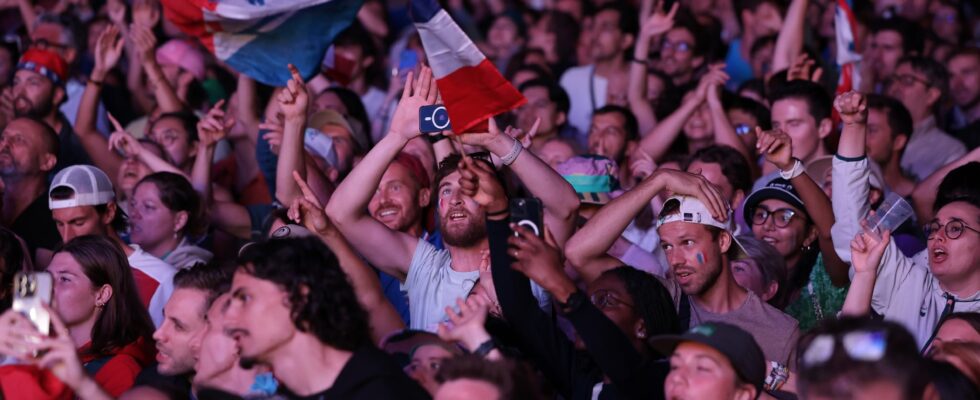The extraordinary success of the Olympic Games leads us to reflect on an interesting paradox in French society. It is as if high-level sport puts us in a position to adore what, politically, we usually hate.
Starting with the glorification of “talent”, of what makes champions not like the others. Logically, we should not: nothing more reflects genetic injustice, the obscenity of “birth”. And we do not even have the help of being able to tell ourselves, as has often been done in Bourdieu’s sociology of literary genius, that their superiority comes from a social construction, from an addition of favorable conditions; in short, that the “gifted” is not really so. We would not believe it. They are too beautiful, too fast, too strong. We accept them in their state of demigods and demigoddesses. Their superhumanity delights us, including when we cry with them at the moment of their fall.
Okay, but training? Sure, but that’s even more paradoxical. We are dazzled by the asceticism of a Teddy Riner or a Simone Biles, the depth of their apostolate… This means that we celebrate their work for itself, for its elevating value, its potential for self-realization and not just for its efficiency. Exactly what we hate on a daily basis or, if you prefer, what a growing number of French people associate with the greatest alienation. Obviously, we want to work as little as possible, as briefly as possible, only perform fulfilling tasks… Still: we delight in knowing that our champions do the opposite – ah, Léon Marchand’s Stakhanovite pool lengths – and admire them for this precise reason; including because they often lose part of their health, physical or mental: it’s even more beautiful when it’s absolute if not a little crazy. For those who remember the debate on pensions and “work, a right-wing value”, according to Sandrine Rousseau, the contrast is fascinating.
Worse: we also exalt the qualities needed to endure the duration of said preparatory tortures, namely, here again, the inhumanity of the affair. No one is fooled: it takes extra soul to endure these tens of thousands of hours of toil, these infernal paces, these renunciations, this iron discipline. In the strictest sense, it is not given to everyone. Weak as we are, we know well – for having experienced it a hundred times – that our good resolutions do not have this constancy. Willpower does not triumph over the masses in real life. Here we go again. At the most disappointing of the experience, we like in them what is hardly distributed in ours.
And then the money from salaries, its volume but also the inequity of its distribution to sports and athletes alone. bankable. The complacency with which we accommodate ourselves to seeing some happy few paid in (tens of) millions of euros is pure wonder in a country so resistant to privileges and so allergic to the wealth of others, regardless of whether or not it was created by the hands of those who possess it. To justify this wart, we invoke the necessary dream of the suburban kid, projected to the soul in the path of his idol. Except that all this is only egalitarian in appearance. Everyone can play football, but it is the finger of God that is needed to hope to be Mbappé. France only accepts the wealth of its illustrious competitors because they are elected by forces beyond our control.
We are not modern. The layer of human rights, equality and democracy that we have – fortunately – deposited on our morals has not made our archaic background disappear, including what is estimable in it. There were Greek heroes at Paris 2024. People loved what we are not, what is not reduced to our mediocrity. They sought transcendence. They glorified effort, sacrifice, surpassing oneself, the flag. It was beautiful. But why on earth does it have to stop at the stadium gates?
.
